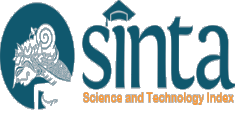A QUALITATIVE EXPLORATION OF HEURISTICS AND COGNITIVE BIASES IN AUDITOR JUDGEMENTS
Abstract
Keywords
Full Text:
PDFReferences
Asbahr, K., & Ruhnke, K. (2019). Real effects of reporting key audit matters on auditors’ judgment and choice of action. International Journal of Auditing, 23(2), 165–180. https://doi.org/10.1111/ijau.12154
Bazerman, M. H., & Moore, D. A. (2013). Judgmental in Managerail Decesion Making. John Wiley & Sons.
Bettinghaus, B., Goldberg, S., & Lindquist, S. (2014). Avoiding auditor bias and making better decisions. The Journal of Corporate Accounting & Finance, 25(4), 39–44. https://doi.org/10.1002/jcaf.21953
Blumenthal-Barby, J. S. (2016). Biases and heuristics in decision making and their impact on autonomy. The American Journal of Bioethics, 16(5), 5–15. https://doi.org/10.1080/15265161.2016.1159750
Bonner, S. E. (2008). Judgment and Decision Making in Accounting. Pearson Prentice Hall.
Bouteska, A., & Regaieg, B. (2019). Psychology and behavioral finance: Anchoring bias by financial analysts on the Tunisian stock market. EuroMed Journal of Business, 15(1), 39–64. https://doi.org/10.1108/EMJB-08-2018-0052
Ceschi, A., Costantini, A., Sartori, R., Weller, J., & Di Fabio, A. (2019). Dimensions of decision-making: An evidence-based classification of heuristics and biases. Personality and Individual Differences, 146, 188–200. https://doi.org/10.1016/j.paid.2018.07.033
Chang, C. J., & Luo, Y. (2019). Data visualization and cognitive biases in audits. Managerial Auditing Journal, Forthcomin. https://doi.org/10.1108/MAJ-08-2017-1637
Choudhary, P., Merkley, K., & Schipper, K. (2019). Auditors’ quantitative materiality judgments: Properties and implications for financial reporting reliability. Journal of Accounting Research, 57(5), 1303–1351. https://doi.org/10.1111/1475-679X.12286
Cossette, P. (2014). Heuristics and cognitive biases in entrepreneurs: A review of the research. Journal of Small Business and Entrepreneurship, 27(5), 471–496. https://doi.org/10.1080/08276331.2015.1105732
Davidai, S., & Gilovich, T. (2016). The headwinds/tailwinds asymmetry: An availability bias in assessments of barriers and blessings. In Journal of Personality and Social Psychology (Vol. 111, Issue 6, pp. 835–851). American Psychological Association. https://doi.org/10.1037/pspa0000066
Eutsler, J., Norris, A. E., & Trompeter, G. M. (2018). A live simulation-based investigation: Interactions with clients and their effect on audit judgment and professional skepticism. Auditing: A Journal of Practice & Theory, 37(3), 145–162. https://doi.org/10.2308/ajpt-51880
Gao, P., & Zhang, G. (2019). Auditing standards, professional judgment, and audit quality. The Accounting Review, 94(6), 201–225. https://doi.org/10.2308/accr-52389
Garber, M. D., Watkins, K. E., & Kramer, M. R. (2019). Comparing bicyclists who use smartphone apps to record rides with those who do not: Implications for representativeness and selection bias. Journal of Transport and Health, 15, 1–14.
Gigerenzer, G., & Gaissmaier, W. (2011). Heuristic decision making. Annual Review of Psychology, 62, 451–482. https://doi.org/10.1146/annurev-psych-120709-145346
Givi, J., & Galak, J. (2019). The “future is now” bias: Anchoring and (insufficient) adjustment when predicting the future from the present. Journal of Experimental Social Psychology, 84(February), 103830. https://doi.org/10.1016/j.jesp.2019.103830
Guiral, A., Rodgers, W., Ruiz, E., & Gonzalo-Angulo, J. A. (2015). Can expertise mitigate auditors’ unintentional biases? Journal of International Accounting, Auditing and Taxation, 24, 105–117. https://doi.org/10.1016/j.intaccaudtax.2014.11.002
Hofstede, G., Hofstede, G. J., & Minkov, M. (2010). Cultures and Organizatios: Software of the Mind (3rd ed.). McGraw-Hill.
Hussain, A., & Oestreicher, J. (2018). Clinical decision-making: heuristics and cognitive biases for the ophthalmologist. Survey of Ophthalmology, 63(1), 119–124. https://doi.org/https://doi.org/10.1016/j.survophthal.2017.08.007
Institute of Chartered Accountants of Scotland (ICAS). (2012). A Professional Judgement Framework for Financial Reporting. ICAS.
Jaspersen, J. G., & Aseervatham, V. (2017). The Influence of affect on heuristic thinking in insurance demand. Journal of Risk and Insurance, 84(1), 239–266. https://doi.org/10.1111/jori.12088
Johnstone, K. M., Chen, J., & Balzan, R. P. (2017). An investigation into the jumping-to-conclusions bias in social anxiety. Consciousness and Cognition, 48, 55–65. https://doi.org/10.1016/j.concog.2016.10.012
Kadous, K., & Zhou, Y. (Daniel). (2019). How does intrinsic motivation improve auditor judgment in complex audit tasks? Contemporary Accounting Research, 36(1), 108–131. https://doi.org/10.1111/1911-3846.12431
Kahneman, D. (2011). Thinking, Fast and Slow. Penguin Books.
Kim, S., Mayorga, D. M., & Harding, N. (2017). Can I interrupt you? Understanding and minimizing the negative effects of brief interruptions on audit judgment quality. International Journal of Auditing, 21(2), 198–211. https://doi.org/10.1111/ijau.12089
Knechel, W. R. (2013). Do auditing standards matter? Current Issues in Auditing, 7(2), 1–16. https://doi.org/10.2308/ciia-50499
Knechel, W. R. (2016). Audit quality and regulation. International Journal of Auditing, 20(3), 215–223.
Knechel, W. R., Krishnan, G. V., Pevzner, M., Shefchik, L. B., & Velury, U. K. (2013). Audit quality: Insights from the academic literature. Auditing: A Journal of Practice & Theory, 32(Supp. 1), 385–421. https://doi.org/10.2308/ajpt-50350
Lambert, T. A., & Peytcheva, M. (2020). When is the averaging effect present in auditor judgments? Contemporary Accounting Research, 37(1), 277–296. https://doi.org/10.1111/1911-3846.12512
Lee, G., Barrowclough, C., & Lobban, F. (2011). The influence of positive affect on jumping to conclusions in delusional thinking. Personality and Individual Differences, 50(5), 717–722. https://doi.org/10.1016/j.paid.2010.12.024
Lune, H., & Berg, B. L. (2017). Qualitative Research Methods for the Social Sciences. Pearson.
Luo, G. Y. (2013). Can representativeness heuristic traders survive in a competitive securities market? Journal of Financial Markets, 16(1), 152–164. https://doi.org/10.1016/j.finmar.2012.05.001
Mactavish, C., McCracken, S., & Schmidt, R. N. (2018). External auditors’ judgment and decision making: An audit process task analysis. Accounting Perspectives, 17(3), 387–426. https://doi.org/10.1111/1911-3838.12182
Mala, R., & Chand, P. (2015). Judgment and decision-making research in auditing and accounting: Future research implications of person, task, and environment perspective. Accounting Perspectives, 14(1), 1–50. https://doi.org/10.1111/1911-3838.12040
McLaughlin, K., Eva, K. W., & Norman, G. R. (2014). Reexamining our bias against heuristics. Advances in Health Sciences Education, 19(3), 457–464. https://doi.org/10.1007/s10459-014-9518-4
Messier, W. F., Glover, S. M., & Prawitt, D. F. (2019). Auditing & Assurance Services: A Systematic Approach (11th ed.). McGraw-Hill.
Miles, M. B., Huberman, A. M., & Saldana, J. (2014). Qualitative Data Analysis: A Methods Sourcebook (3rd ed.). Sage.
Nouri, P., Imanipour, N., Talebi, K., & Zali, M. (2018). Most common heuristics and biases in nascent entrepreneurs’ marketing behavior. Journal of Small Business & Entrepreneurship, 30(6), 451–472. https://doi.org/10.1080/08276331.2018.1427406
Otuteye, E., & Siddiquee, M. (2015). Overcoming cognitive biases: A heuristic for making value investing decisions. Journal of Behavioral Finance, 16(2), 140–149. https://doi.org/10.1080/15427560.2015.1034859
Patton, M. Q. (2015). Qualitative Research & Evaluation Methods: Integrating Theory and Practice (4th ed.). Sage.
Sanusi, Z. M., Iskandar, T. M., Monroe, G. S., & Saleh, N. M. (2018). Effects of goal orientation, self-efficacy and task complexity on the audit judgement performance of Malaysian auditors. Accounting, Auditing & Accountability Journal, 31(1), 75–95. https://doi.org/10.1108/AAAJ-12-2015-2362
Schafer, B. A., & Schafer, J. K. (2019). Interpersonal affect, accountability and experience in auditor fraud risk judgments and the processing of fraud cues. In Advances in Accounting Behavioural Research, Vol. 22 (pp. 43–65). Emerald Publishing. https://doi.org/10.1108/S1475-148820190000022004
Slovic, P., Finucane, M. L., Peters, E., & MacGregor, D. G. (2007). The affect heuristic. European Journal of Operational Research, 177(3), 1333–1352. https://doi.org/10.1016/j.ejor.2005.04.006
Tamir, D. I., & Mitchell, J. P. (2013). Anchoring and adjustment during social inferences. Journal of Experimental Psychology: General, 142(1), 151–162. https://doi.org/10.1037/a0028232
Tsunogaya, N., Sugahara, S., & Chand, P. (2016). Judgments of auditors on "principles” versus “guidance” in lease accounting standard. Asian Review of Accounting, 24(3), 362–386. https://doi.org/10.1108/ARA-04-2012-0017
Tsunogaya, N., Sugahara, S., & Chand, P. (2017). The impact of social influence pressures, commitment, and personality on judgments by auditors: Evidence from Japan. Journal of International Accounting Research, 16(3), 17–34. https://doi.org/10.2308/jiar-51761
Tversky, A., & Kahneman, D. (1974). Judgment under uncertainty: Heuristics and biases. Science, 185(4157), 1124–1131. https://doi.org/10.1126/science.185.4157.1124
Wedemeyer, P. D. (2010). A discussion of auditor judgment as the critical component in audit quality - A practitioner’s perspective. International Journal of Disclosure and Governance, 7(4), 320–333. https://doi.org/10.1057/jdg.2010.19
Xiao, H. (2020). Anchoring in international merger and acquisition equity decisions: evidence from Chinese firms. Baltic Journal of Management, 15(3), 395–410. https://doi.org/10.1108/BJM-04-2019-0124
Yang, L., Brink, A. G., & Wier, B. (2018). The impact of emotional intelligence on auditor judgment. International Journal of Auditing, 22(1), 83–97. https://doi.org/10.1111/ijau.12106
Zhang, G., & Zhu, A. X. (2019). A representativeness heuristic for mitigating spatial bias in existing soil samples for digital soil mapping. Geoderma, 351, 130–143. https://doi.org/10.1016/j.geoderma.2019.05.024
DOI: https://doi.org/10.32400/ja.30634.9.2.2020.94-112
Refbacks
- There are currently no refbacks.
Copyright (c) 2020 Agus Fredy Maradona

This work is licensed under a Creative Commons Attribution-NonCommercial 4.0 International License.
Publisher:
Program Studi Pendidikan Profesi Akuntansi
Fakultas Ekonomi dan Bisnis
Universitas Sam Ratulangi
Jl. Kampus Bahu - Manado, Sulawesi Utara
Indonesia 95115
Cooperation with:
Ikatan Sarjana Ekonomi Indonesia (ISEI)
d/a. Sekretariat Ikatan Sarjana Ekonomi
Fakultas Ekonomi dan Bisnis Universitas Sam Ratulangi
Jl. Kampus Bahu - Manado, Sulawesi Utara
Indonesia 95115










